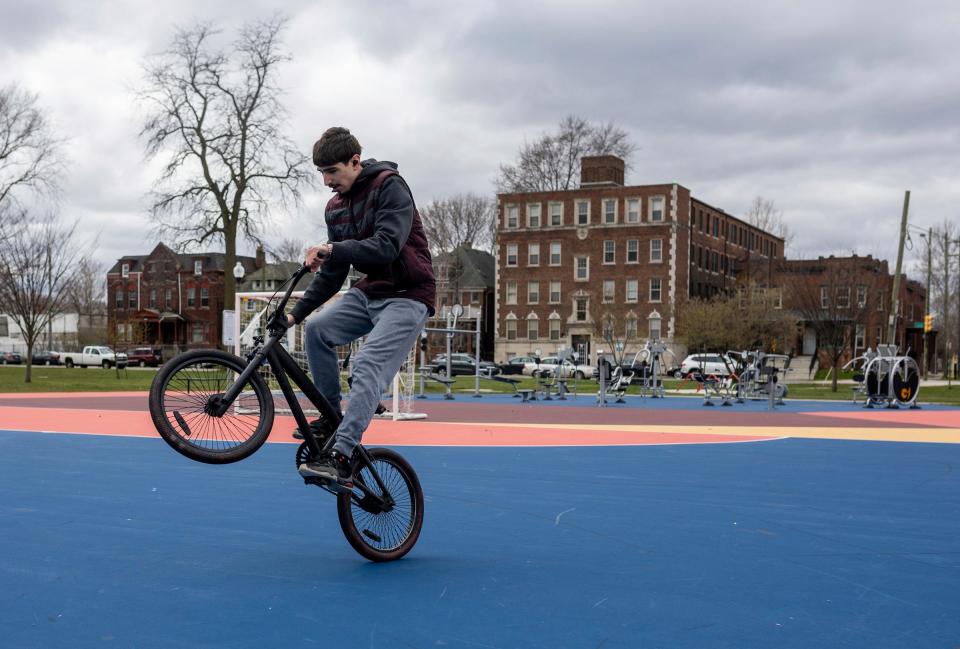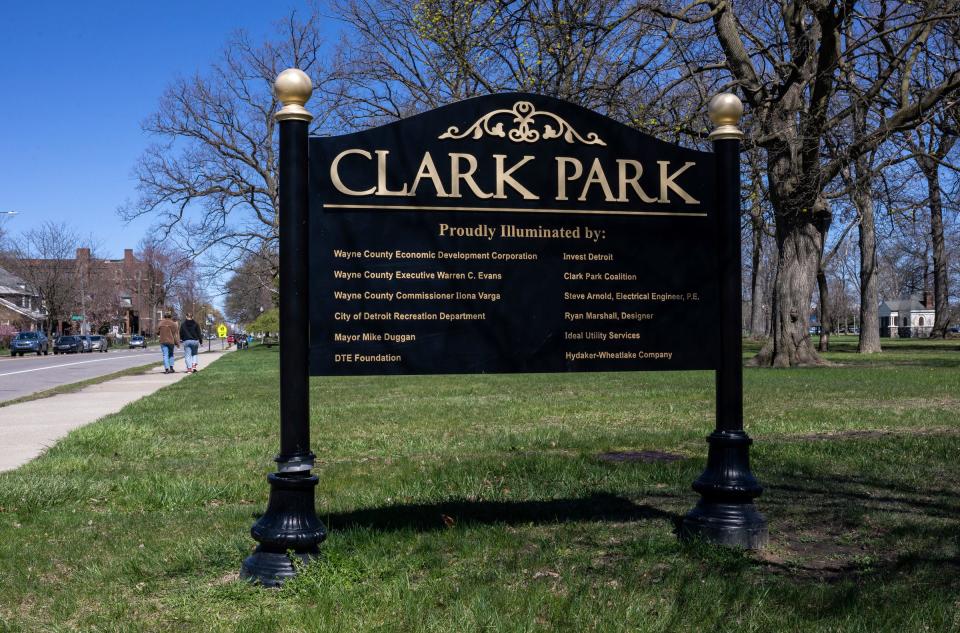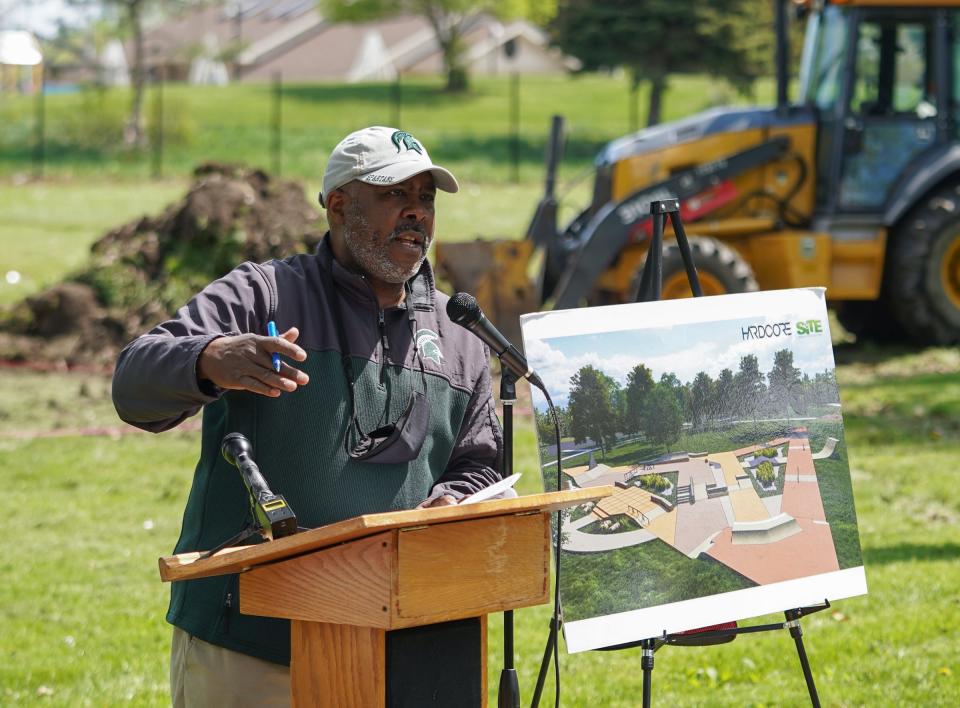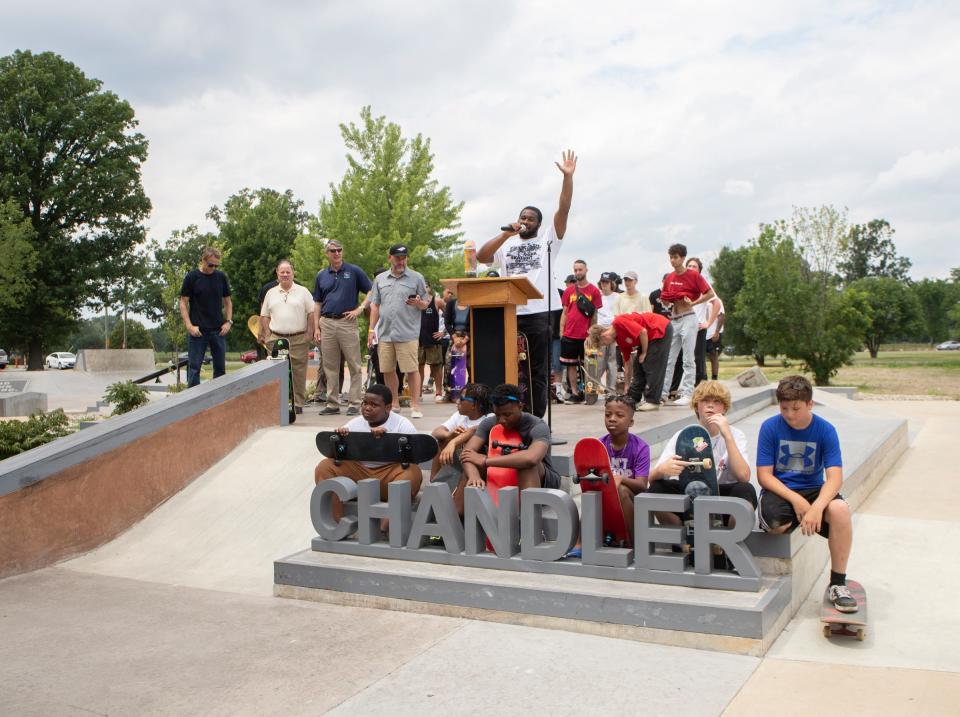As Detroit's population finally grows, don't forget those who held the line
A righteous mob of Detroiters once took bolt cutters and neighborhood muscle to a fence that illegally cut off access to a public park, tearing it down and taking back a community asset that had been commandeered by the owners of the Ambassador Bridge.
Another group of neighbors has, for decades, knocked on doors of drug houses to bravely and politely ask the occupants to stop harboring illegal activity.
Some Detroiters, fed up with cars speeding on residential streets, have even built their own makeshift speed bumps.
Neighborhood safety patrols, blight busters, mower gangs, dog rescue groups, church basement boxing gyms ... the list goes on.
With a long, complicated history of greatness and turmoil, Detroit is a place where residents often take matters into their own hands. Sometimes those efforts are fueled by grants and fellowships and organized groups.
Other times, they’re powered by plain-old elbow grease.
It’s a tendency and a tradition Detroiters should hold onto, even as economic conditions improve and expectations rise.
It’s a level of self-reliance and neighborly obligation that new residents will need to get used to. And newcomers, for the first time since 1957, are outnumbering those who are giving up on the city.
Finally, the view from outside the city is enticing enough that Detroit's population is growing, even if by a sliver, according to new U.S. Census Bureau estimates released this week.
They're finally recognizing that the promise, the cultural brilliance, the historic significance, the festivals, the parades, the sports teams, the theater, the block parties, the street art, the gallery art, the farmers markets, the rec centers and the massive parks far out outweigh the income taxes and high insurance rates.
Those who are bringing their families back from the suburbs into the city — in some cases looking to help reverse the exodus their grandparents started — deserve to be welcomed back to the city with open arms.
But they've got to follow the lead of those who never left.

Refusing to accept abandonment
Detroiters' propensity for plowing their own streets and building their own bus benches stems largely from times when city government was not in a position to help.
There was a time when the city couldn’t afford to keep its parks open. It closed many, and entrusted churches and neighborhood groups with the upkeep of others.
In southwest Detroit, a group of neighbors in 1991 formed a coalition to gather donations and volunteers to make repairs and improvements at Clark Park. The city, at the time, could not support the 30-acre, wooded community gem.
"It was a wonderful opportunity to come together and ask the city to let the parents do this," said Deb Sumner, one of the Clark Park Coalition's founders.
Former Detroit Tigers pitcher Hank Aguirre, who had ties to the neighborhood, convinced Mayor Coleman Young to hand over the keys to the Clark Park recreation center and ice rink, which had been closed, Sumner said.

More: How the community saved Detroit's Clark Park, more than once
"They would have gotten filled with graffiti, they would have gotten set on fire — this was what was going on, and we just couldn't allow our park to not be cared for," she said.
"Many of the volunteers, we grew up in that park. We were ice skating in that park. we played baseball in that park. We wanted our kids to experience that."
Sumner, Aguirre's son Rance and other volunteers used a hose and borrowed construction equipment to restore the ice on the neglected rink.
"I begged for a used Zamboni and I got one," Sumner said. "... We made ice that first winter, we had the kids skating and they were treated with respect."
Three decades later, after a generation of children enjoyed the park under the care of its neighborhood guardians, the city is back in a position to spend significant money on recreation, and recently invested $3 million on vast Clark Park improvements including new basketball and soccer courts, outdoor fitness equipment, a splash pad, new benches, trees, landscaping and picnic tables.
It’s a shining example of what happens when neighbors plainly refuse to accept abandonment. The city trusted its residents to hold the line while it struggled, and came through with rewards once it finally found itself on more solid financial ground.
'Detroiters will always rise up'
As things change around the city and economic growth becomes more and more of a reality — property values are up $4 billion over 10 years — there’s a danger that Detroiters, especially newer Detroiters, forget about the responsibility this city’s residents once shouldered to keep things afloat.
It’s a part of our culture we can’t afford to lose.
“I think Detroiters are going to always find a way to step up and do what needs to be done, and that can be as small as helping the city identify problems,” said Alex Allen, CEO of the Chandler Park Conservancy, a group that supports another one of Detroit’s premier parks, this one on the east side.

The century-old, 200-acre Chandler Park, known for its water park and golf course, has been undergoing a $20 million makeover funded by individual donations, charitable foundations, the UAW and the city itself. Also in store for the park is a $14 million dome sports complex expected to open in 2025.
A master plan for the park was put together by conservancy board members and residents of the neighborhood.
Allen said city leaders along the way have always had the will to help, but didn’t always have the resources.
“Even with limited resources, the city was at the table,” he said. “The city was there helping us to figure out what’s realistic. … I think Detroiters will always rise up if the city is lacking in some way.”

Whether its grant writing or street sweeping, Detroiters do tend to find ways to fill gaps and bring attention to deficiencies and potential solutions.
After some 65 years of population decline from 1.8 million in the 1950s, suburban families making their way back to the city are doing so thanks to the spirit of self-reliance and neighborly duty that’s kept Detroit's heart beating while they were gone, and now they can join in on those traditions.
"We have left a legacy that we hope will continue and continue," said Sumner, "and how can it not?"
Khalil AlHajal is the deputy editorial page editor of the Detroit Free Press, and a proud resident of southwest Detroit. Contact him at kalhajal@freepress.com. Submit a letter to the editor at freep.com/letters and we may publish it online or in print.
This article originally appeared on Detroit Free Press: Detroit's population is finally growing, thanks to those who never left

